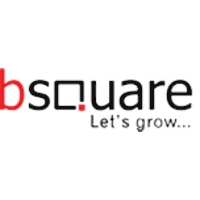Top Accounts Payable Software for Business
List of 30 Best Accounts Payable Software


What is Accounts Payable Software?
Accounts Payable (AP) software is a type of financial management software designed to streamline and automate the accounts payable process within organizations. It provides a centralized platform for managing and tracking the payment obligations a company has to its suppliers or vendors.
The primary purpose of accounts payable software is to simplify and optimize the processing of invoices, facilitate accurate recording of financial transactions, and ensure timely payment to suppliers while maintaining proper documentation and compliance. It helps eliminate manual data entry, reduce errors, enhance workflow efficiency, and improve overall financial management.
What are the types of Accounts Payable Software?
Accounts Payable (AP) software comes in various types, each catering to different needs and preferences. Here are some common types of accounts payable software:
Standalone Accounts Payable Software: These are dedicated software solutions specifically designed to handle accounts payable processes. They focus solely on automating AP tasks, such as invoice processing, payment scheduling, and vendor management.
Integrated Accounting Suites: Many comprehensive accounting software packages include built-in accounts payable modules. These suites offer a broader range of financial management features, including accounts receivable, general ledger, and financial reporting, in addition to accounts payable capabilities.
Enterprise Resource Planning (ERP) Systems: ERP systems integrate various business functions into a centralized platform, including finance, human resources, inventory management, and more. Accounts payable functionality is typically included as part of the overall ERP software suite.
Cloud-based Software: Cloud-based accounts payable software is hosted on remote servers and accessed via the internet. It offers scalability, easy accessibility, and real-time collaboration. Cloud solutions often provide automatic updates, data backups, and remote access for enhanced convenience.
Open-Source Software: Open-source accounts payable software allows users to access and modify the source code, offering flexibility and customization options. It can be an attractive choice for businesses with specific requirements or those seeking cost-effective solutions.
Industry-Specific Software: Some industries have specialized accounts payable software tailored to their unique needs. For example, healthcare, construction, or hospitality industries may have AP solutions that incorporate industry-specific regulations, workflows, and reporting requirements.
It's important to evaluate your specific business requirements, budget, scalability needs, and integration capabilities when choosing the type of accounts payable software that best suits your organization.a
Key Features of Accounts Payable Software Platforms
Accounts payable software platforms offer a range of features to streamline and optimize the accounts payable process. While specific features may vary across different platforms, here are some key features commonly found in accounts payable software:
Invoice Processing: Capture, digitize, and store invoices electronically. Automate data extraction from invoices using optical character recognition (OCR) technology to eliminate manual data entry.
Purchase Order Matching: Match invoices with corresponding purchase orders and receipts to ensure accuracy and verify the receipt of goods or services.
Approval Workflows: Define and automate invoice approval workflows based on predefined rules and hierarchies. Route invoices to the appropriate personnel for review and approval.
Payment Management: Schedule and track payments to vendors. Generate payment requests, process payments through various methods (e.g., checks, electronic funds transfer), and manage payment terms and discounts.
Vendor Management: Maintain a centralized vendor database with contact information, payment terms, and historical transaction records. Manage vendor communications and track vendor performance.
Document Management: Store and organize invoice-related documents, such as purchase orders, receipts, and contracts. Enable easy retrieval and access to supporting documents for auditing and compliance purposes.
Reporting and Analytics: Generate reports and gain insights into accounts payable activities, outstanding payments, cash flow analysis, vendor spend analysis, and more. Monitor key performance indicators (KPIs) to assess efficiency and identify areas for improvement.
Integration with Accounting Systems: Seamlessly integrate with accounting software or enterprise resource planning (ERP) systems to ensure accurate and synchronized financial data across the organization.
Automation and Workflow Efficiency: Automate routine tasks, such as invoice data entry, approval routing, and payment scheduling, to improve efficiency, reduce errors, and save time.
Audit Trails and Compliance: Maintain detailed audit trails of all accounts payable activities, including invoice history, approvals, and payment records. Ensure compliance with financial regulations and internal controls.
Vendor Self-Service: Provide vendors with a self-service portal to access payment status, submit invoices electronically, and update their information, reducing manual communication and improving vendor satisfaction.
Multi-Currency and Multi-Language Support: Handle international transactions by supporting multiple currencies and accommodating language preferences.
These features aim to streamline the accounts payable process, improve accuracy, enhance vendor relationships, and provide better financial visibility and control. Consider your business requirements and priorities to choose an accounts payable software platform that aligns with your organization's needs.




.png)